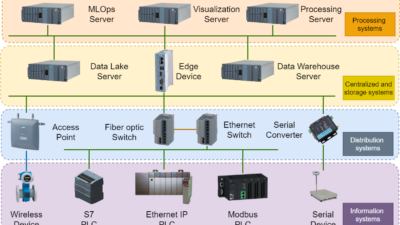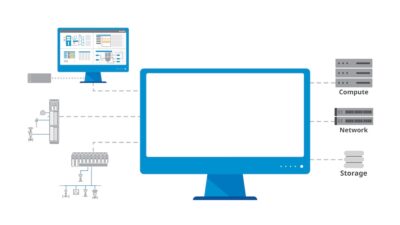Eighteen months after going live onthe P400 Advanced Planning and Scheduling system from Preactor, Oberto Sausage Company saw a 40 percent reduction in work-in-process, which is helping the company meet required customer service levels without stockpiling excess inventory.
Oberto Sausage Company is a family owned business that offers a complete portfolio of meat snacks (such as jerky and sausage sticks), refrigerated sausage and deli products for 89 years. Headquarted in Kent Washington, the more recognized Oberto brand names are Oh Boy! Oberto, Lowrey’s, Pacific Gold, and Smokecraft. Oberto has national distribution in all classes of trade, with distribution by Frito Lay and other distributors, as well as direct sales. The company also is experiencing strong growth in international markets.
Oberto has a large and diverse product base, with over 400 products. The manufacturing process is complex, not only due to product diversity, but meats from different parts of the world must be processed differently for the same products. Timely production is important to maintain freshness.
As the business grew, it became increasingly difficult to develop production schedules that would allow for meeting required customer service levels without stockpiling excess inventory.
The major impediment, according to Eric Kapinos, Oberto’s director of forecasting & planning, was an inability to account for constraints-such as the limits on how much various machines can produce time period-when creating production schedules. When this became apparent, Oberto began looking for a system that could do what in the trade is called finite capacity scheduling. It found that in the P400 APS (Advanced Planning and Scheduling) system from Preactor. In addition to offering true finite capacity scheduling, Kapinos says the Preactor system was appealing for a number of reasons, including:
• Its open architecture, which promised to make it easy for Oberto to adapt the system to its specific business needs; and
• A large user base among companies that rely on the QAD MFG/Pro ERP system, which Oberto also uses. This was an indication that it would be easy for Oberto to transfer data from its ERP system to the scheduling application.
During the selection process, Kapinos said the Oberto project team also became comfortable with the level of support it saw coming from the Preactor reseller network.
Oberto purchased its system from Quinn & Associates Inc, the North American network partner for Preactor products, which also provided user and technical training.
Following the training, the Oberto team was able to create interfaces for integrating MFG/Pro with the Preactor system. Because of its extensive work with MFG/Pro users, Preactor has standard interfaces for linking the two systems, but Kapinos says Oberto had heavily customized MFG/Pro to fit its business model so it needed to create custom interfaces to Preactor as well.
Once the interfaces were built, Oberto conducted a six-month pilot program before deciding to go live with Preactor. Eighteen months after the official live date, Kapinos said the system had fulfilled its promise. The real payoff, he said, was a 40 percent in work-in-process, which is "a direct result of the bucketless scheduling available in Preactor, a feature not found in alternative solutions."
Bucketless scheduling is a part of the Preactor BoM Exploder (PBX) feature that allows for creating simplified product structure for scheduling purposes that differ from what is used for costing and shop floor transactions. It also allows schedulers to change product structures on the fly and use alternate BoM’s without waiting for administrative support or MFG/Pro scheduled jobs to complete. — Edited by Sidney Hill, executive editor



